Theatre 'needs to be more diverse', say actors
- Published
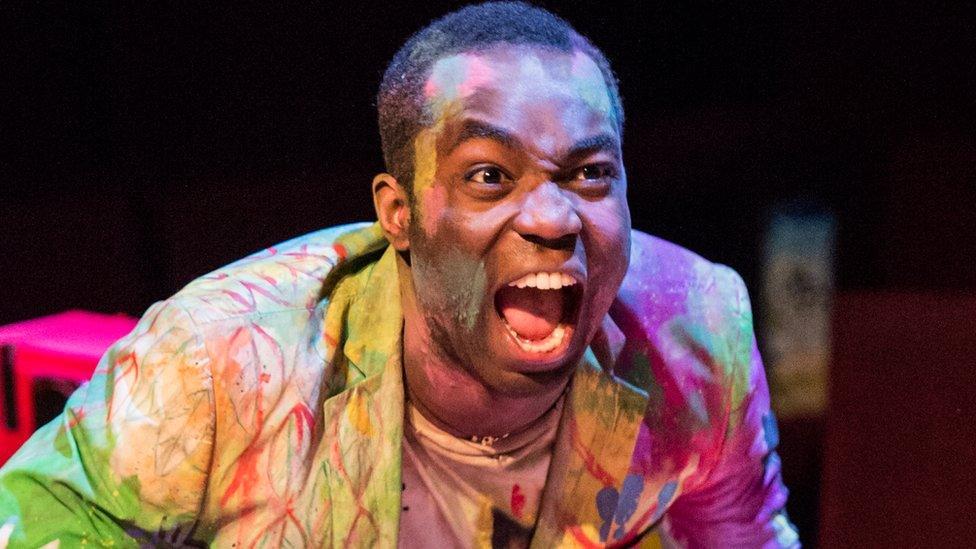
Paapa Essiedu plays the lead in the RSC's latest production of Hamlet
With the #OscarsSoWhite controversy and calls for the Brit Awards to be "more truly representative", there has never been more discussion about diversity in the arts.
On stage, recent major productions of Hamlet and King Lear featured predominantly black, Asian and ethnic minority (BAME) casts, but according to some in the industry, "you can walk onto a building site and see more diversity than in the average theatre".
Paapa Essiedu, who is currently the Royal Shakespeare Company's Hamlet, says theatre is "caught between two worlds at the moment".
"There's a lot of positivity about how we see our present and future and that's all good, but I still don't see or feel that impact.
"What is required is for people to be more bold and more adventurous in what they back."
In Manchester, the Royal Exchange's King Lear saw veteran actor Don Warrington take the lead, something which he says "should not be in any way startling".
Yet many reviews drew attention to his race, which Warrington says is "an indictment of where we are".
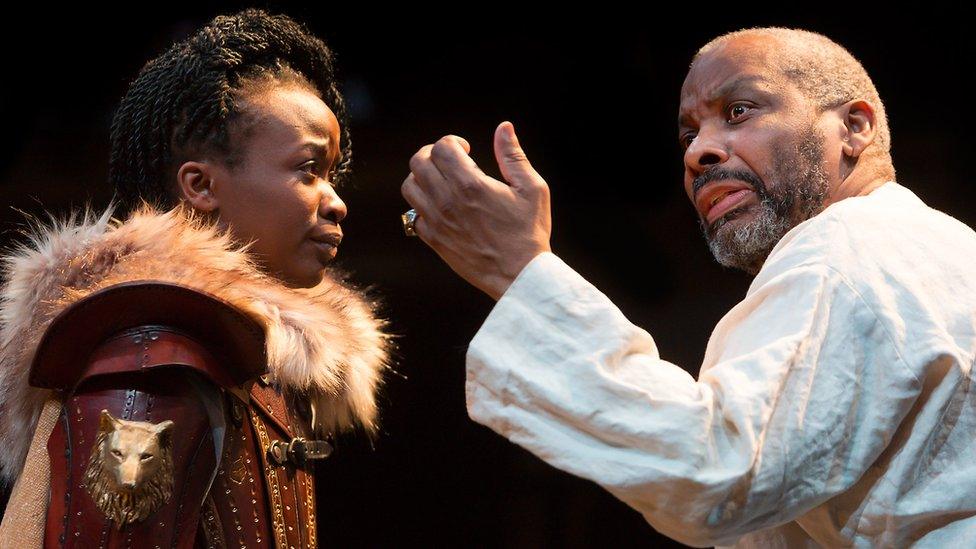
Don Warrington says there is a need to "wake up our consciences"
He says while conditions have improved since he began his acting career almost 50 years ago, that anyone wants to discuss his casting shows there is still a "problem".
"There's a higher visibility, but the question is about the quality of that visibility and the quality of the parts.
"I don't think that is where it should be."
Hamida Ali, the acting union Equity's equalities and diversity organiser, shares Warrington's unease.
"One of the things we remain concerned about is how surprised we might be when we see a black actor in a lead role, not just in Shakespeare, but in general.
"It says something in itself that that remains something of note."
She says there is definitely "a consensus that there is a problem, but what the cause is, who is responsible and what the solutions are is perhaps more in debate".
'Gone backwards'
The production of Lear was put on with Talawa, a theatre company set in the 1980s "in direct response to the lack of creative opportunities for actors from minority ethnic backgrounds".
Artistic director Michael Buffong says three decades on, there is still "a rapid need for change".
"What we need is different people to reflect different aspects of the same world, otherwise we have this very narrow viewpoint."
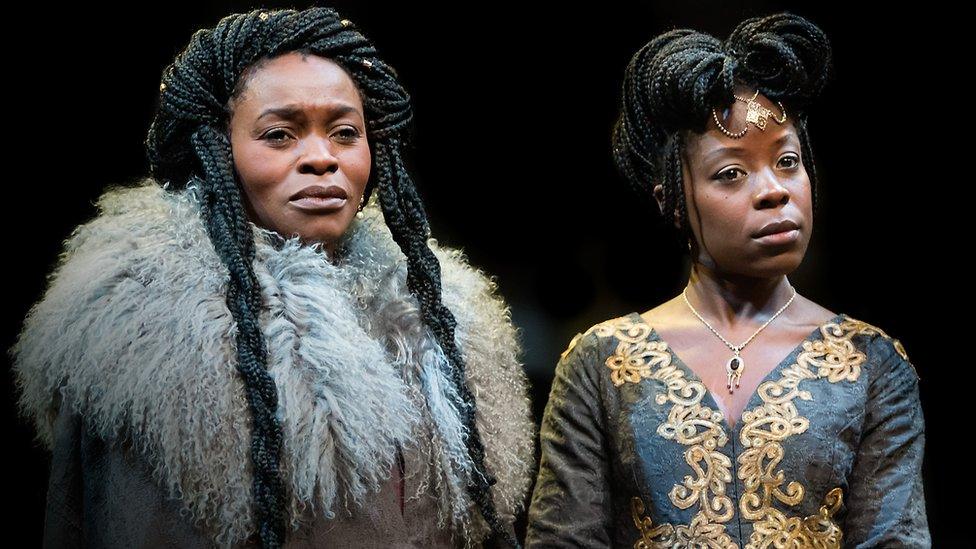
Talawa was set up "in direct response to the lack of creative opportunities" for BAME actors
Essiedu agrees theatre needs to be "more diverse about the stories we're telling and the people that are telling them".
"By doing that, there will be more opportunity for a more diverse group of actors.
"We're in 2016 in an international, multicultural, integrated society and we've got a responsibility as artists to reflect that in the work that we create."
Matthew Xia, an associate artistic director at the Royal Exchange, says far from getting better, theatre has "gone backwards in so many ways".
"It's not just about the art, it's also about the organisational structure.
"In the majority of organisations, the moment you get to the leadership, it drops right down with regards to proportionate representation of the cities that they are working in.
"It's beyond me, because you can walk onto a building site and see more diversity than you can see in what is meant to be the liberal end of the work spectrum."
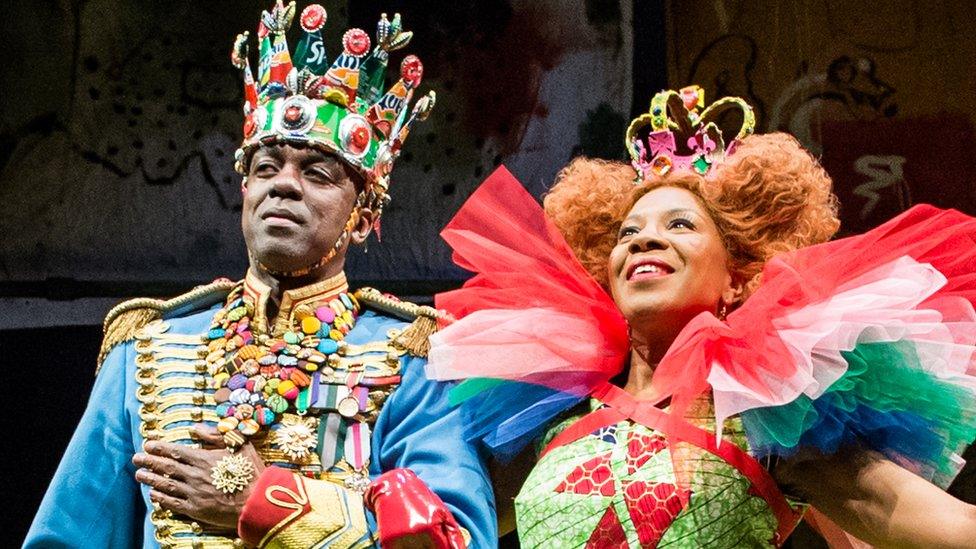
The RSC's production of Hamlet features a predominately BAME cast
Buffong says, as a result, there is a need to "change the gatekeepers, because that's where the power is".
"You can cast two black actors in a play and go 'wow, we've got two black actors' but that's not really the same as having a story from a particular point of view.
"Just because there is a black actor on the stage doesn't necessarily mean it's your story."
'Lack of understanding'
Dawn Walton, the founder of Sheffield's Eclipse - which uses "the Black British experience to create new work that will enrich the canon of British theatre" - agrees.
"There is a belief in theatre that what is on stage is what needs to be diverse, so cross-casting is always where people go - casting a black whatever - but if that solved it, we'd have beaten this in the 1970s.
She says theatre boards need to change because "they're very much into doing the same thing over and over again... but the country has shifted".
"The institution is becoming less and less relevant because it doesn't represent what goes on right outside its doors."
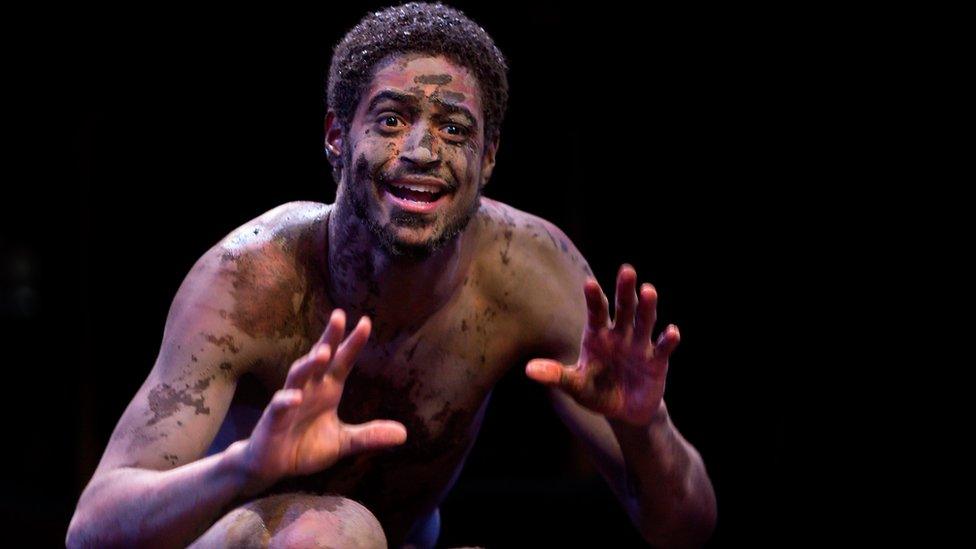
The Royal Exchange has featured BAME actors in lead roles
Xia says theatre is "still at a place where actors of colour are expected to play peripheral characters unless the play is explicitly dealing with race, which is ridiculous".
"The human experience is so much broader than that.
"I've heard quite scary things said by directors which shows a lack of understanding about roles and who can play what.
"Ultimately, people are always going to represent their world on stage, so if their world has been monocultural, it's highly likely that's how the work will be rendered."
The "diversity of theatre generally is an issue", according to Arts Council England's director of theatre, Neil Darlison.
"I think theatres are aware of it and if they're not, they should be, because ultimately it's going to affect their business."
However, he says there are some positive signs, "particularly in metropolitan centres, where the diversity of people working in organisations and running them is better than it was".
"They're starting to reflect the stories of the inhabitants of the city."
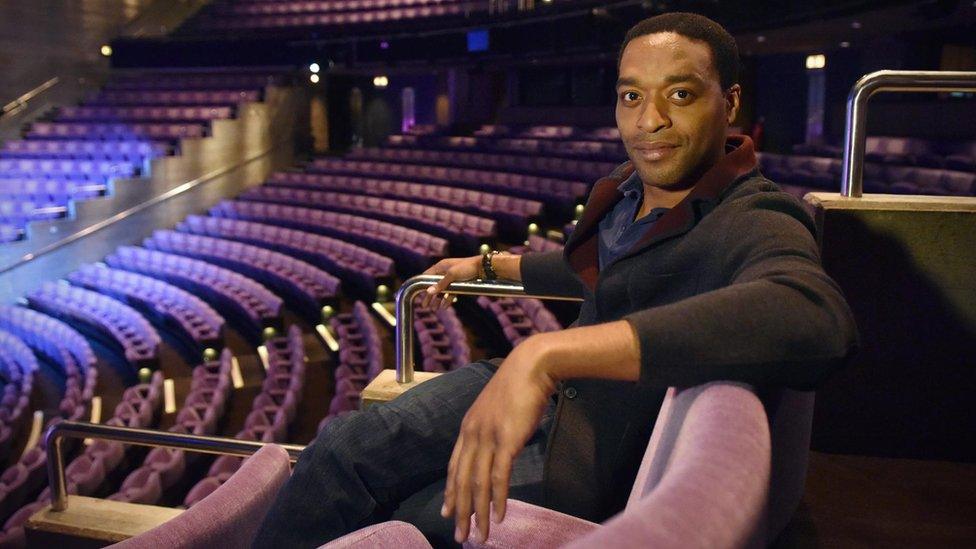
Chiwetel Ejiofor inspired Paapa Essiedu to try his hand at Shakespeare
Warrington believes direct action is needed to effect change.
"We have to wake up our consciences and we can do that by having a deliberate policy, so that it becomes part of everyday life.
"It has to become something we do."
Buffong adds that he is "in favour of anything that gets an instant result".
"Targets, quotas, ringfencing money - I'm in favour of making it happen now.
"The idea of more initiatives and training is so over. There's a wealth of people who just need the opportunity to work."
'Thorny question'
Ali says those opportunities may be hampered by the law, which "in some ways" supports equality, but also has grey areas.
"There are exemptions from the duty not to discriminate where appropriate and casting is one of those.
"If you are casting for realism purposes or because of the way a character is written, that is permitted, so you could argue that exemption has worked against progress.
"I understand that we're talking about an artistic process, but we must recognise it is an industrial one, and decisions made have an impact disproportionately on working opportunities.
"It's a difficult and thorny question because there are pros and cons on both sides."
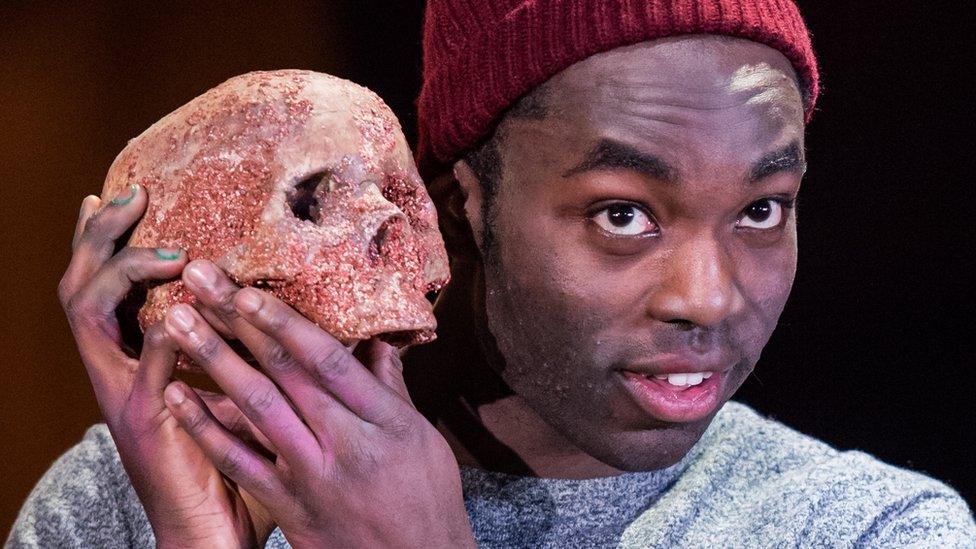
Essiedu played the male lead in a production of Romeo and Juliet in Bristol in 2015
Essiedu believes the answer may be a simple one.
"We mimic what we see, so we need to put that in front of people to get that machine started.
"I'd never seen a black actor performing the lead in a Shakespeare play until I was 18 and I saw Chiwetel Ejiofor doing Othello in the Donmar Warehouse, external.
"Because I hadn't seen it, I didn't think it was possible and I didn't explore that avenue.
"People from whatever background are only going to be inspired to write or perform if they see it.
"If you've got an artistic director who is willing to try and fail, then you're going to get a wider palette of works.
"Some of it will probably be terrible, but some of it will be unbelievably brilliant."
Hamlet is in cinemas from 8 June and at the Royal Shakespeare Theatre in Stratford-upon-Avon 13 August.
- Published19 January 2016
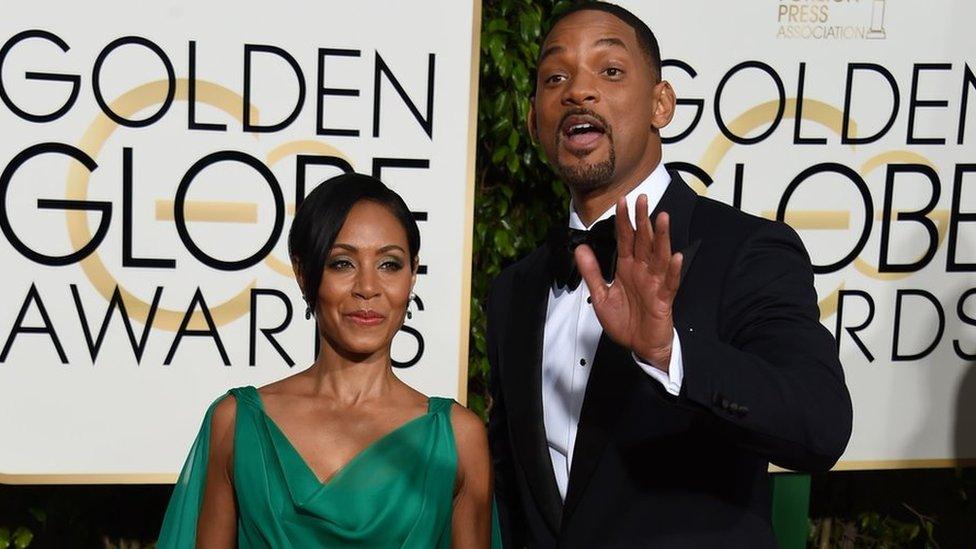
- Published5 March 2016
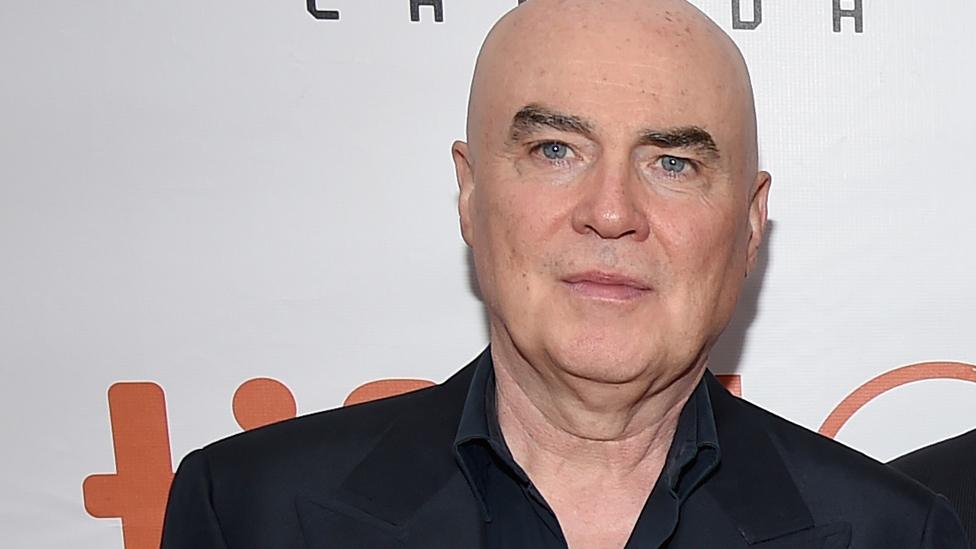
- Published15 July 2013
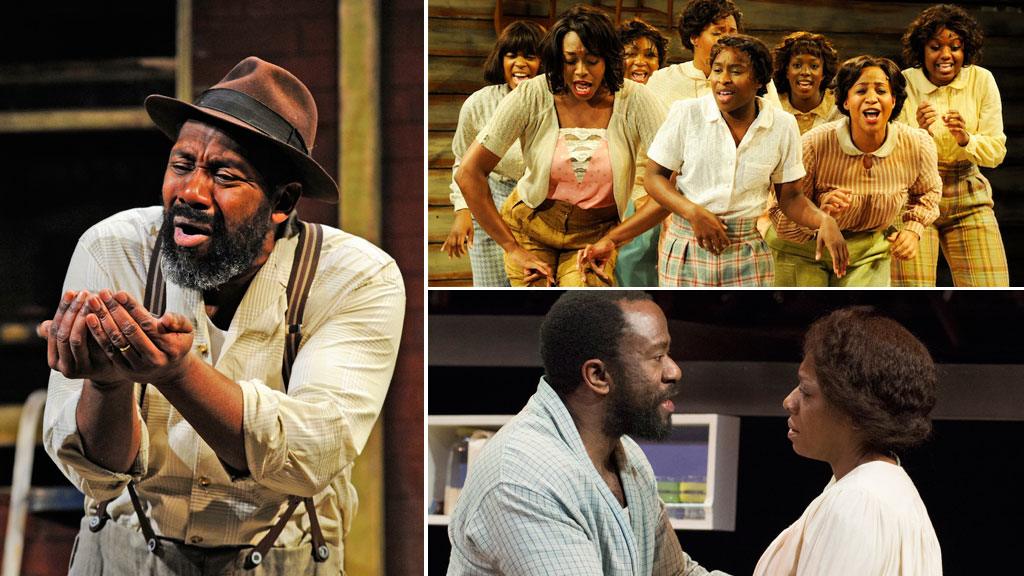
- Published12 June 2013
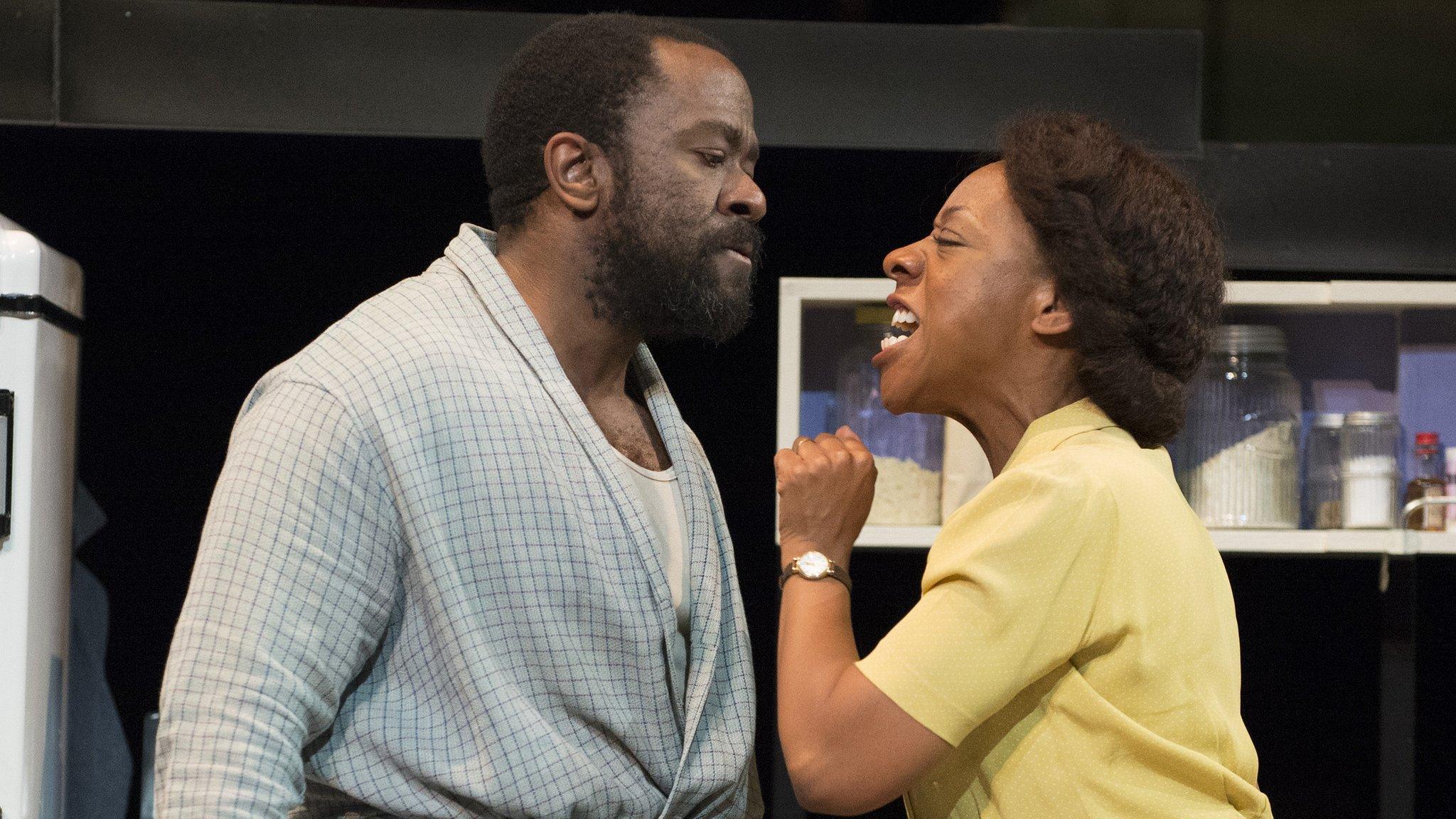
- Published24 October 2012
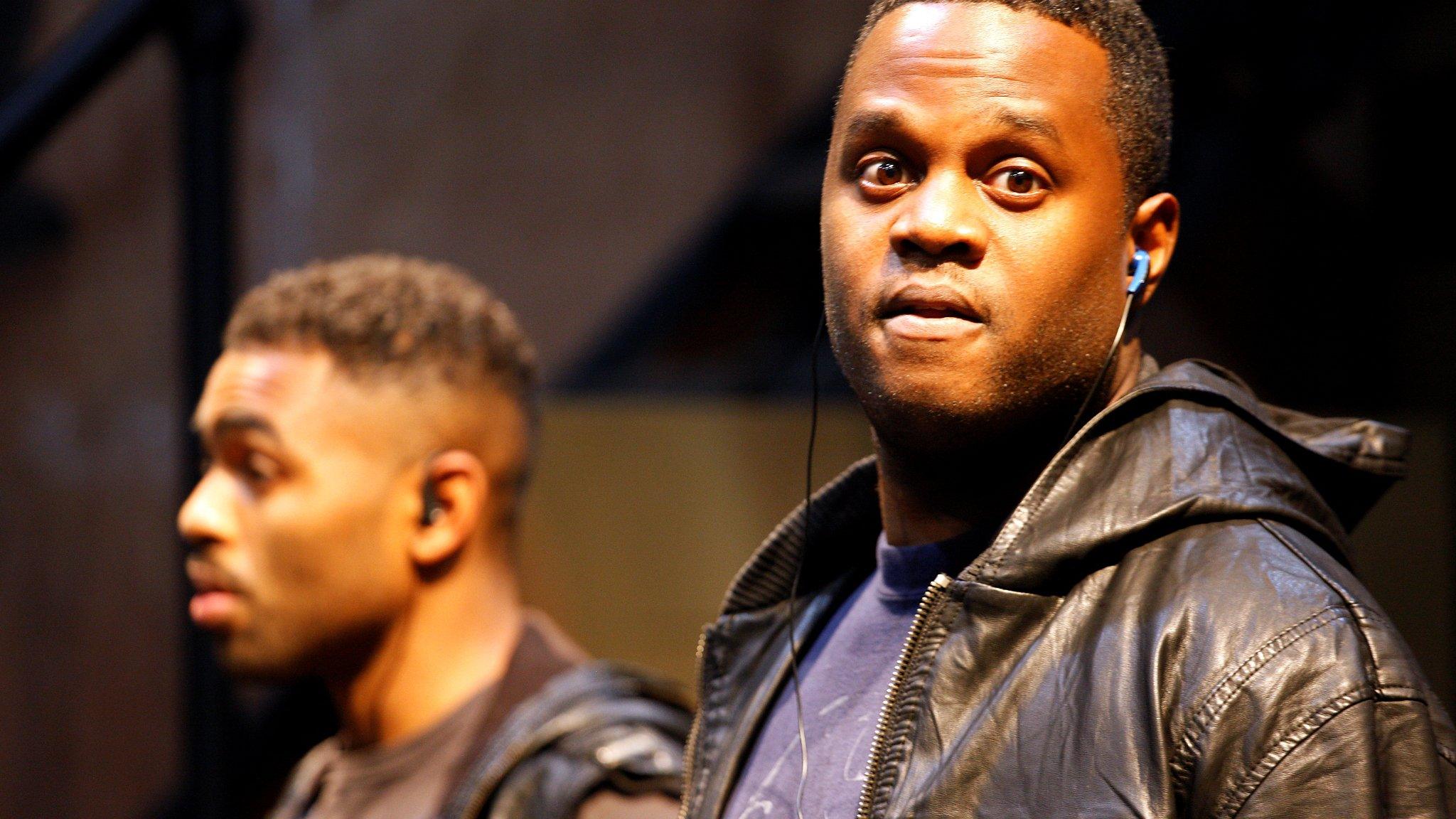
- Published15 March 2011